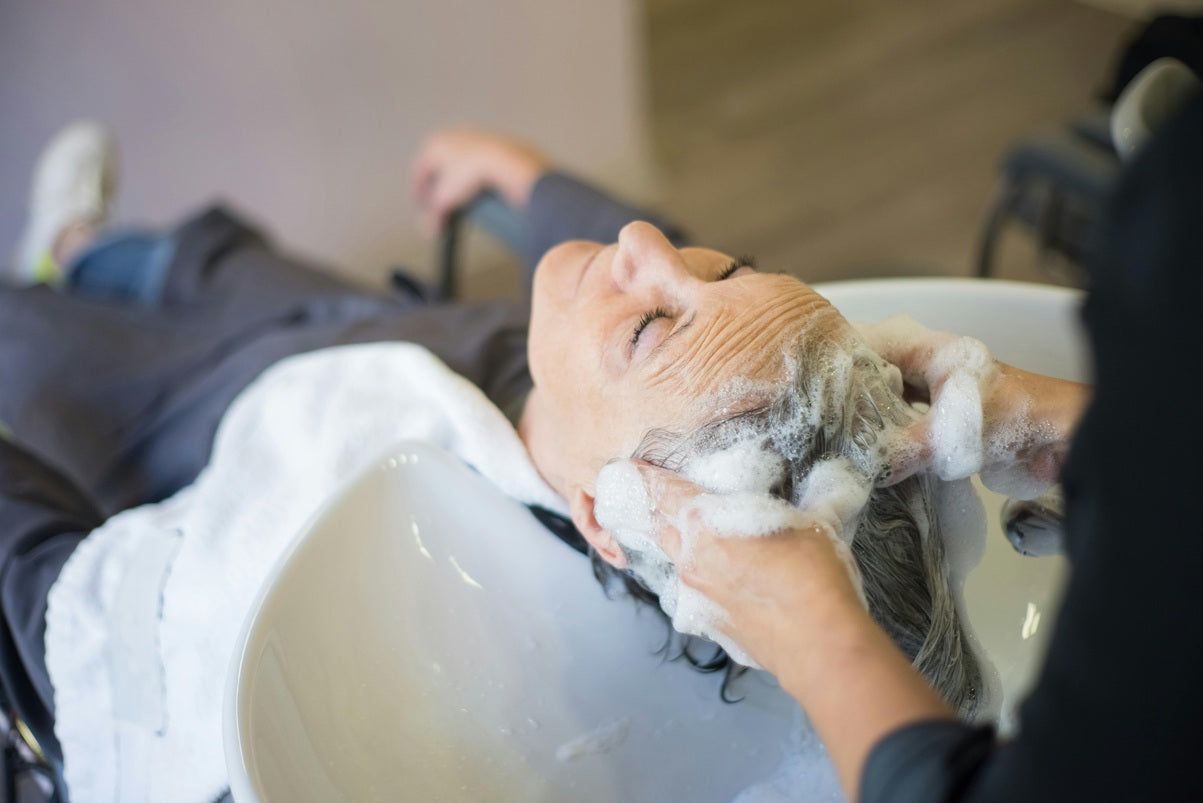The Shocking Truth: What Our Survey of 100 Popular Shampoos Revealed
Have you ever scrutinized the ingredients in your shampoo?
Most of us haven't. We trust colorful bottles labeled "herbal," "natural," or "Ayurvedic" to deliver on their promises of healthier hair while maintaining our wellbeing. But Ayushoveda's recent comprehensive analysis of 100 popular shampoos in the Indian market reveals a disturbing reality that should concern every consumer.
The Survey That Changed Everything
Dr Nambi analyzed 100 popular shampoos across different categories—Herbal, Ayurvedic, Traditional, Babies and Anti-Dandruff. Each product's complete ingredient list was thoroughly examined against established toxicology databases, regulatory standards, and ingredient safety profiles. This deep research was done by using the latest OpenAI 4.5 models for high accuracy and completeness - including checking against the famous Dirty Dozen list of chemicals to avoid by David Suzuki, the famous Canadian environmentalist.
The results were nothing short of alarming.
The harsh reality:
- 76% of analyzed shampoos contain ingredients classified as toxic
- Only 3% are made from all natural sources
- 9 out of 10 had ingredients in the "Dirty Dozen" list
- 14% contain ingredients banned in the European Union
Perhaps most shocking was finding that 83% of products marketed as "herbal" contain toxic ingredients. Even products explicitly labeled "Ayurvedic" fared only slightly better, with 61% containing concerning synthetic chemicals.
Source: Analysis of 100 popular shampoo brands in India
The Marketing Deception
Walk down any personal care aisle, and you'll see countless shampoos featuring herbs, plants, and natural imagery on their packaging. Terms like "herbal," "natural," "botanical," and "Ayurvedic" dominate the labels. Yet our analysis reveals a profound disconnect between these marketing claims and what's actually inside the bottles.
The pattern is clear: natural ingredients are prominently featured in marketing while synthetic chemicals form the bulk of the formula. Often, the natural extracts appear far down on ingredient lists—indicating their presence in minimal, sometimes merely symbolic, amounts.
This isn't just misleading—it potentially threatens your health and that of your family.
Hidden Hazards in Plain Sight
Among the most concerning findings was the widespread presence of specific harmful ingredients:
Sodium Laureth Sulfate (SLES) was found in numerous products. This harsh surfactant not only strips the scalp of its protective oils but may also be contaminated with 1,4-dioxane, a probable human carcinogen.
DMDM Hydantoin, a formaldehyde-releasing preservative linked to skin irritation and allergic reactions, appeared in multiple shampoos—including some marketed for sensitive scalps.
Fragrances (listed simply as "parfum" or "fragrance") appeared in 78% of the analyzed products. These terms can legally mask dozens or even hundreds of undisclosed chemicals, many known to cause irritation, allergic reactions, or hormonal disruption.
Silicones like dimethicone were present in 20% of products. While they create temporary smoothness, they build up over time, leading to dull, lifeless hair that requires increasingly harsh washing.
From an Ayurvedic perspective, these synthetic ingredients create significant dosha imbalances, causing long term scalp and hair problems.

Children's Products: A Special Concern
Perhaps most disturbing was finding that even products marketed for children frequently contained synthetic chemicals of concern. Parents naturally assume that products designed for young ones would meet the highest safety standards, yet our analysis found this often isn't the case.
Children's developing bodies are particularly vulnerable to chemical exposure, making this finding especially troubling from both medical and ethical perspectives.
The Exclusive 3%
In this landscape of concerning findings, one statistic stands out as a ray of hope: 3% of the shampoos analyzed were made from all natural sources. These rare shampoos contain no harsh sulfates, no silicones, no synthetic preservatives, and no artificial fragrances.
And to no surprise Ayushoveda Gentle Natural Shampoo is one of these rare, high-quality products.
What distinguishes these top shampoos is genuine natural formulation philosophies rather than merely adding a small amount of natural extracts to conventional formulas. They cleanse effectively without stripping the scalp of its essential oils, that Ayurveda recognizes as fundamental to healthy hair.
Making Informed Choices
Given these findings, how can consumers protect themselves and their families? The answer lies in education and vigilance:
- Read ingredient lists, not just marketing claims
- Research unfamiliar ingredients before assuming they're safe
- Be wary of vague terms like "fragrance," "parfum," and "base"
- Look for transparency from brands about their formulation philosophy
- Consider products that are truly made from all natural sources
The good news is that once you know what to look for, finding genuinely natural products becomes much easier. The 7.3% of shampoos made from all natural sources represent a growing movement toward authentic formulations that honor both traditional wisdom and modern safety standards.
A Better Way Forward
Our research demonstrates a clear need for greater transparency in the personal care industry. Consumers deserve products that match their marketing claims and don't require a chemistry degree to decipher.
Until industry practices improve, the responsibility falls on us as consumers to make informed choices. By supporting genuinely natural products and avoiding those with concerning ingredients, we send a powerful message that our health and the integrity of product claims matter.
After all, what we apply to our bodies several times a week shouldn't be compromising the very health and beauty we're trying to enhance.












